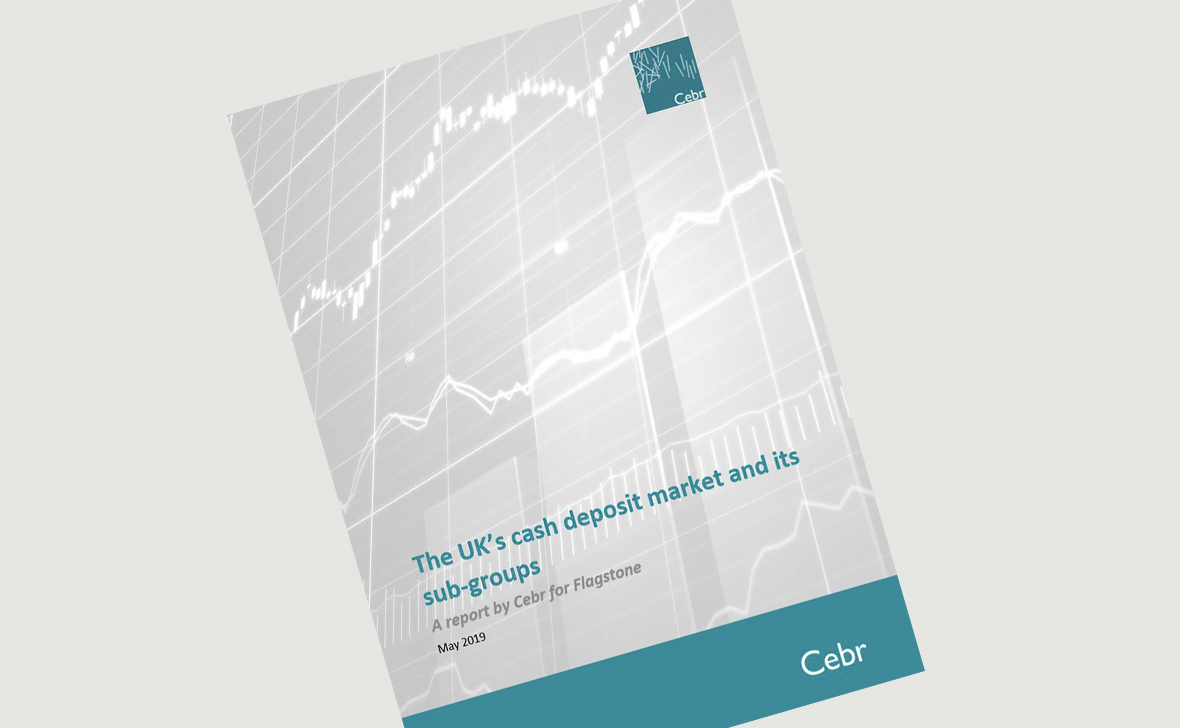Challenger banks struggle to break Big 5’s savings market dominance despite offering £7bn more to savers

The UK’s challenger banks are struggling to break the Big 5’s stranglehold on the savings market despite offering much higher levels of interest than their larger rivals, a new study reveals.
A major new report from Flagstone, the UK’s largest cash deposit platform, shines a light on widespread inertia among the nation’s 36.5 million[1] savers.
The so-called Big 5 – Barclays, HSBC, Lloyds, Royal Bank of Scotland and Santander – hold £827 billion of the £1.3 trillion in UK household deposits, equivalent to a market share of 63%, despite paying significantly lower rates of interest on average.
Research by the Centre for Economics and Business Research (Cebr) on behalf of Flagstone shows that, based on current instant access and fixed-term deposit rates, savers with the Big 5 banks could earn a maximum of £3.4 billion in interest on their cash savings over the next 12 months.
However, analysis of the best-paying instant access and fixed-term deposit accounts shows savers could earn up to £7 billion* extra interest if they switched from the Big 5 to a leading rate offered by a smaller provider.
That is because, typically, the Big 5 pay much lower rates of interest than the market’s smaller players.
For example, out of the Big 5, Santander[2] currently pays the highest rate of interest on an instant saver, at 0.4%. By comparison, Virgin Money[3] pays 1.5% on its e-saver easy access account, according to comparison site Savingschampion.co.uk.
The same trend occurs across other types of savings products. Barclays[4] pays 1.2% on its two-year fixed-term bond, the highest level of interest among the Big 5. However, this is much lower than the 2.3% Atom Bank[5] offers savers.
The findings reveal widespread inertia among UK savers when it comes to shopping around for a better deal on their cash.
A 4,207-person survey carried out by YouGov, accompanying Flagstone’s new report, reveals more than four in 10 savers would be tempted to switch accounts if offered an extra 1 percentage point on their savings.
Given many challenger banks are already offering rates at least 1 percentage point higher than their Big 5 rivals, this suggests many households are not fully aware of the deals on offer in the market or are put off by the hassle of opening and maintaining new deposit accounts.
Nearly a quarter (24%) of those surveyed said banks would need to offer them an additional 2 percentage points in interest to persuade them to switch deals.
The report also found there to be notable differences in rate sensitivity depending on how wealthy the respondent is and whether or not they receive some form of financial advice.
Among respondents with cash deposits in excess of £100,000, nearly three-fifths (57%) stated that a lack of a large enough interest rate differential between their existing and alternative accounts had discouraged them from switching accounts, compared to 44% of individuals with less than £100,000.
In the advised and non-advised sub-groups, the difference was 49% and 43% respectively.
The general lack of rate awareness among savers also explains to some extent the rapid increase in the amount of money languishing in accounts paying no interest.
Since 2008, the amount held in zero interest accounts has rocketed from £33 billion to £170 billion, accounting for 12% of the UK’s household cash deposit market.
Andrew Thatcher, Co-Founder and Co-Managing Partner of Flagstone, said:
“This study reveals the high-levels of inertia in the cash deposit market and the challenges that non-high street banks face in raising deposits. Consumers continue to tell us that price is an important factor in choosing where to place deposits and this is borne out in the study, but despite challenger banks offering significantly higher rates than the high street banks, switching is not occurring at a fundamental level which indicates that other factors such as access to information and ease of transacting and managing deposit accounts still have a significant impact.
As rates have fallen, there has been a convergence in pricing leading to a spike in the amount of money households and businesses put into accounts paying very low rates of interest. However, it is worth noting that our experience shows that clients using a cash deposit platform such as ours can still increase their interest income by up to 1000% by accessing the right deals.
Thatcher continues: “In the advised market, which accounts for nearly 70% of all UK household cash deposits, we’ve found that customers are even more inert. They are driven less by price and more by convenience, they are also strongly put-off by complicated or convoluted application processes despite having significantly more to gain.
Thatcher
concludes: “The
solution a platform like Flagstone provides is that it removes many of the
barriers to switching and gives individuals, SMEs, Charities and SIPP holders
access to market leading rates on hundreds of cash deposits. Meanwhile, for
banks it offers easy-access to a hard-to-reach market while also enabling them
to raise deposits at a much lower cost.”
To download a copy of the report, click here.
[1] https://www.fca.org.uk/publication/research/financial-lives-consumers-across-uk.pdf#page=12 (Page 48)
[2] Source: Santander (23/05/19) Santander eSaver
[3] Source: Savings Champion (23/05/19) Virgin Money Double Take E-Saver Issue 10
[4] Source: Barclays (23/05/19) Barclays 2-Year Flexible Bond
[5] Source: Savings Champion (23/05/19) Atom Bank 2 Year Fixed Saver
